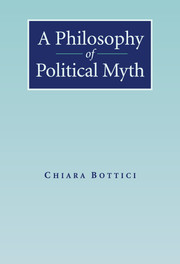10 - Myth, Historical Narratives and the Social Imaginary
Published online by Cambridge University Press: 24 July 2009
Summary
According to one view, history consists of a collection of events, the faithful reproduction of which is the task of the historian. The historian reconstructs events as they actually happened and reproduces them in a narrative, the truth of which resides in the correspondence between the story told and the story actually lived by the people. According to this view, the literary aspect of historical narrative is limited to a few stylistic embellishments – as opposed to the kind of inventiveness presumed to be inherent in mythical and fictitional narratives. The criterion for distinguishing between mythical and historical narratives would thus consist of the reality of the latter as counterpoised to the unreal or fictitious character of the former.
Recent theories, though, have sharply questioned this view. A variety of approaches, ranging from those of French structuralism and poststructuralism, to historians drawing inspiration from the Annales group, to those of literary theorists and philosophers, such as Barthes, Foucault and Kristeva, tend to dissolve the distinction between “real” and “fictitious” narratives, by arguing that there is no ontological difference between the two. Notwithstanding the huge differences between such approaches, they all emphasise that a narrative is not a form that can be added to the content without altering it: narrative, in this perspective, is a form already full of content. Thus, mythical and historical narratives cannot be counterpoised as fictitious and real stories; rather, they tend to converge.
- Type
- Chapter
- Information
- A Philosophy of Political Myth , pp. 203 - 226Publisher: Cambridge University PressPrint publication year: 2007

